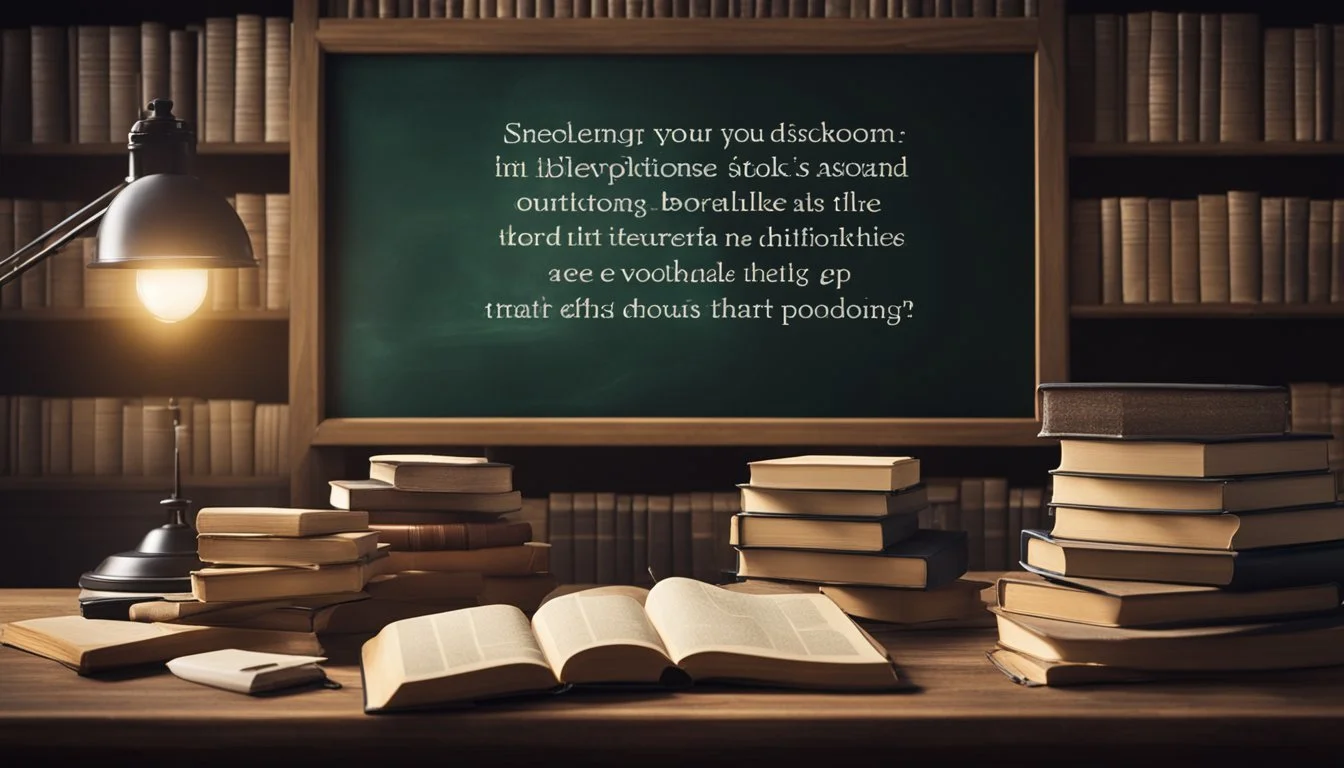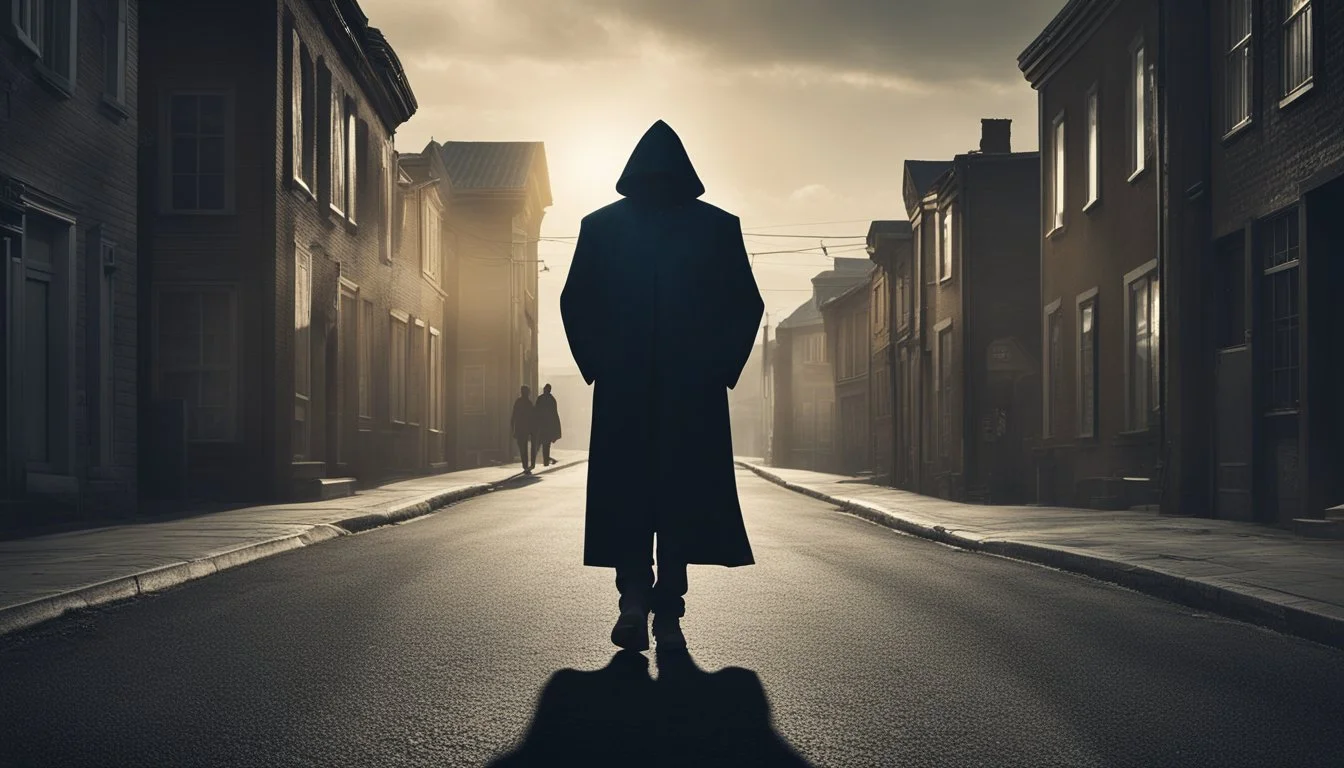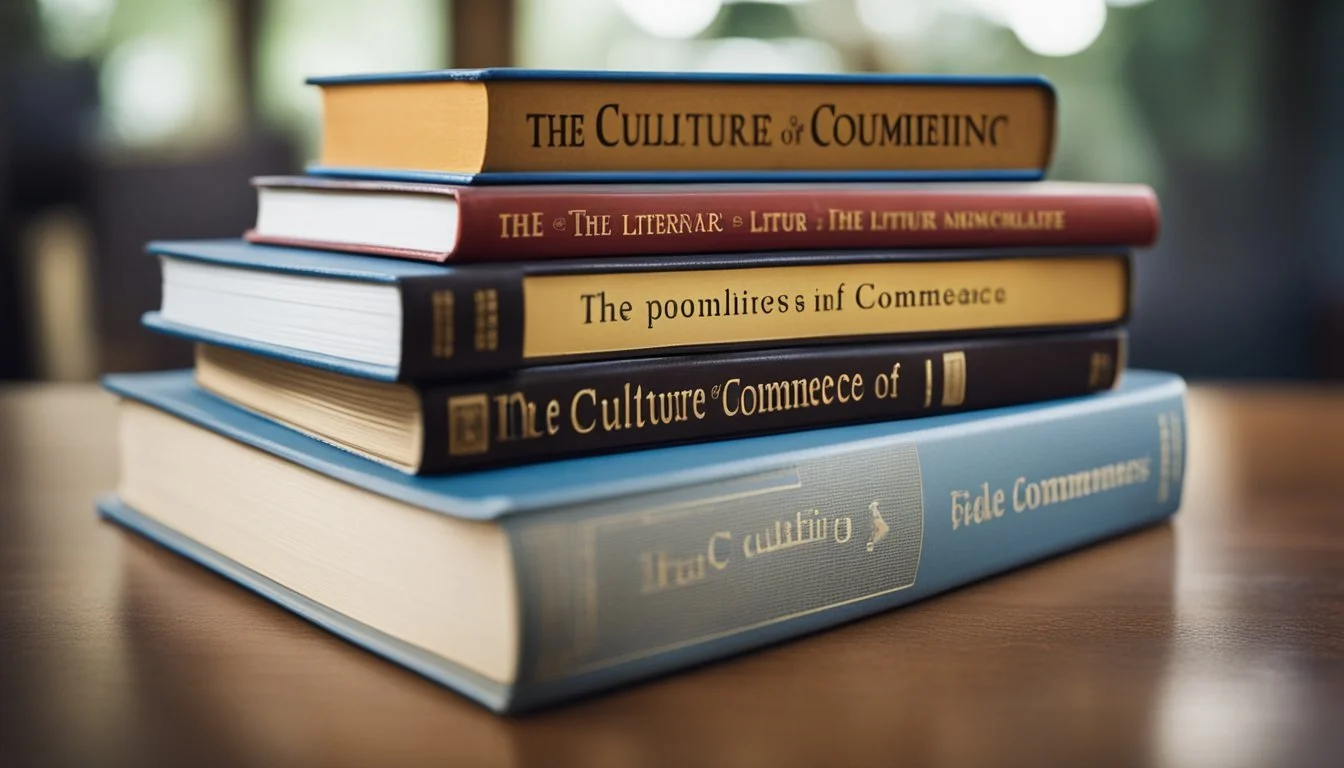7 Documentaries About the Role of Literature in Education
Transformative Power of Reading
The integration of literature into educational curriculums plays a vital role in nurturing critical thinking, empathy, and cultural awareness among students. Documentaries that spotlight this intersection offer profound insights into how literature shapes educational experiences and contributes to the development of well-rounded individuals.
Through these films, one can explore the transformative impact of storytelling and literary analysis within classrooms. By delving into various educational settings, these documentaries demonstrate the potential of literature to inspire and educate across diverse demographics and learning environments.
1) "The Adversary: A True Story of Monstrous Deception" by Emmanuel Carrère (2001)
"The Adversary: A True Story of Monstrous Deception" by Emmanuel Carrère explores a chilling real-life story. It delves into the double life of Jean-Claude Romand, a man who deceived everyone around him for nearly two decades.
Carrère reconstructs Romand's life, revealing the facade he maintained while pretending to be a successful doctor. His lies unraveled in January 1993, leading to a tragic and violent conclusion.
The book is a gripping account that examines the psychology of deception and the extremes to which individuals can go. This true crime story offers profound insights into human nature and the capacity for deceit.
For more information, visit Wikipedia.
2) "Letters to a Young Teacher" by Jonathan Kozol (2007)
"Letters to a Young Teacher" by Jonathan Kozol offers a unique perspective on the role of literature in education. While it is a book, its documentary essence lies in the powerful narratives and educational insights it provides.
The book is a collection of letters written by Kozol to Francesca, a first-grade teacher in an inner-city school in Boston. Through these letters, Kozol discusses various educational philosophies and the importance of literature in young students' lives.
Kozol frequently praises Francesca for her candid reflections on the challenges and inadequacies of traditional teaching methods. His letters serve as a guide, offering practical advice and moral support, while also addressing broader issues like diversity in education.
By documenting his experiences and thoughts, Kozol provides a comprehensive look at the educational landscape, showcasing both the struggles and triumphs of teaching. This makes "Letters to a Young Teacher" a valuable resource for anyone interested in the intersection of literature and education.
Learn more about "Letters to a Young Teacher" on Wikipedia.
3) "The Freedom Writers Diary" by Erin Gruwell (2010)
"The Freedom Writers Diary" chronicles the experiences of Erin Gruwell, a young teacher at Wilson High School in Long Beach, California. Facing a diverse and often troubled student body, she inspired her students to express themselves through writing.
Gruwell's teaching methods included assigning the students to write daily diary entries, which were later compiled into the book. These entries provided insight into the students' lives and struggles, revealing the transformative power of literature and education.
A documentary based on this book highlights the impact of Gruwell’s unconventional teaching methods. By encouraging students to find their voices, she changed their outlook on education and life.
For more information, visit IMDb.
4) Room to Read: A Story of Hope in the Battle for Global Literacy by John Wood
John Wood's "Room to Read: A Story of Hope in the Battle for Global Literacy" explores the impact of literature on education around the world. Wood, a former Microsoft executive, founded Room to Read to promote global literacy and education, particularly in Asia and Africa.
The book recounts Wood's journey from leaving his corporate career to dedicating his life to building libraries and promoting gender equality through education. The Room to Read organization focuses on creating educational opportunities for children in underprivileged communities, emphasizing the importance of access to books and literacy programs.
Through the detailed narrative, readers learn how Room to Read grew into a reputable nonprofit. The organization has positively impacted millions of children by providing quality educational resources. Wood's passion and commitment to educational equality shine through in his writing, inspiring others to contribute to this crucial cause.
For more information, visit Wikipedia.
5) The Great Books Movement: Proceedings of the First National Conference by Elizabeth Long
The Great Books Movement gained significant traction between 1920 and 1948. Elizabeth Long's documentary focuses on the inaugural national conference, which brought together educators and scholars to discuss the impact and methodology of teaching great books.
The conference underscored the importance of making classic literature accessible outside traditional academic settings. There was a strong belief that great books could enhance cultural and intellectual growth for a broader audience.
The film highlights key speakers who discuss the historical roots and evolution of the movement. Mortimer J. Adler's influence, inspired by John Erskine's General Honors course at Columbia University, plays a pivotal role in these discussions.
Panelists also explore the practical aspects of forming and leading great books reading groups. This includes selecting texts, fostering inclusive discussions, and encouraging critical thinking among participants.
The documentary aims to provide a comprehensive understanding of the movement's goals. It identifies challenges and successes, offering insights into the future of literature-based education initiatives.
6) Books: The Culture and Commerce of Publishing by John B. Thompson
Books: The Culture and Commerce of Publishing, authored by John B. Thompson, dives into the intricacies of the publishing business.
Thompson's research offers insights into both historical and contemporary aspects of the industry.
He utilizes interviews and extensive data to present his findings.
The book discusses the significant challenges faced by publishers in the 21st century.
Traditional methods of book publishing remained largely unchanged for centuries.
However, Thompson highlights turbulent shifts within the industry brought about by digital advancements.
The analysis provides readers with a nuanced perspective on how economic imperatives and market dynamics shape the publishing world.
For more information: Wikipedia.
7) How Literature Plays with the Brain: The Neuroscience of Reading and Art by Paul B. Armstrong (2013)
Paul B. Armstrong explores the intricate relationship between literature and neuroscience in his work. This documentary delves into how literary experiences parallel brain functions.
Armstrong emphasizes that literature reveals key aspects of human experience. He discusses how reading can stimulate different parts of the brain, enhancing cognitive functions and emotional understanding.
The film draws connections between literary theory and neuroscience. It provides examples of how engaging with literature can impact neural pathways, influencing empathy and perception.
For more information, visit this link.
Influence of Classic Literature in Modern Education
Classic literature holds a significant place in modern education, shaping critical thinking and cultural understanding among students. Its impact can be traced through historical influences and its ongoing relevance in today's classrooms.
Historical Context
Classic literature has been a cornerstone of education for centuries, with works by authors like Shakespeare, Homer, and Dickens forming the backbone of literary curricula. In the 19th and early 20th centuries, these texts were integral to developing a shared cultural heritage and promoting literacy. Historical texts like "The Odyssey" and "Great Expectations" not only introduced students to complex themes and sophisticated language but also cultivated a deeper appreciation for the human experience across different eras.
Enduring Relevance
Today, classic literature remains a vital component of education, continuing to inspire and challenge students. These texts offer timeless themes such as love, ambition, and morality, which resonate across generations. Books like "To Kill a Mockingbird" and "Pride and Prejudice" are frequently discussed for their social commentary and ethical lessons. Introducing these works helps students develop critical thinking skills and empathy by engaging with diverse perspectives and historical contexts. Educators use these stories to connect past and present, fostering a rich understanding of cultural evolution and societal values.
Documentary Insights on Literature's Pedagogical Value
Documentaries about the role of literature in education highlight diverse perspectives. These films often feature expert interviews and real-world classroom applications.
Expert Interviews
Expert interviews in literature-focused documentaries provide deep insights. Scholars, authors, and educators often discuss the intrinsic value of literature in shaping critical thinking. They explore how literature helps students understand complex human emotions and social issues.
For instance, in some documentaries, experts may analyze classics, explaining their relevance to modern educational curriculums. Key contributors often argue that literature fosters empathy and cultural awareness. Interviews highlight how literature courses can develop analytical skills, preparing students for varied professional fields.
Another crucial point discussed is the interdisciplinary approach literature offers. Experts emphasize literature’s capacity to connect with history, science, and philosophy, enriching the overall educational experience. These interviews underscore the profound impact of literature on personal and intellectual growth.
Classroom Applications
Classroom applications of literature as depicted in documentaries focus on practical strategies. Teachers demonstrate how specific literary works are used to engage students and enhance learning.
Interactive approaches like group discussions and role-playing exercises are frequently showcased. Educators might highlight how novels and poems are integrated into curriculums to make learning more relatable and dynamic.
Documentaries also illustrate how literature can address contemporary issues. For example, incorporating works on social justice, diversity, and ethics can provoke thoughtful classroom debates. Visual storytelling through films provides an immersive way to understand literature's impact on students’ cognitive and emotional development.
These applications exemplify how literature not only aligns with educational standards but also enriches students' educational experiences by deepening their understanding of the world.




